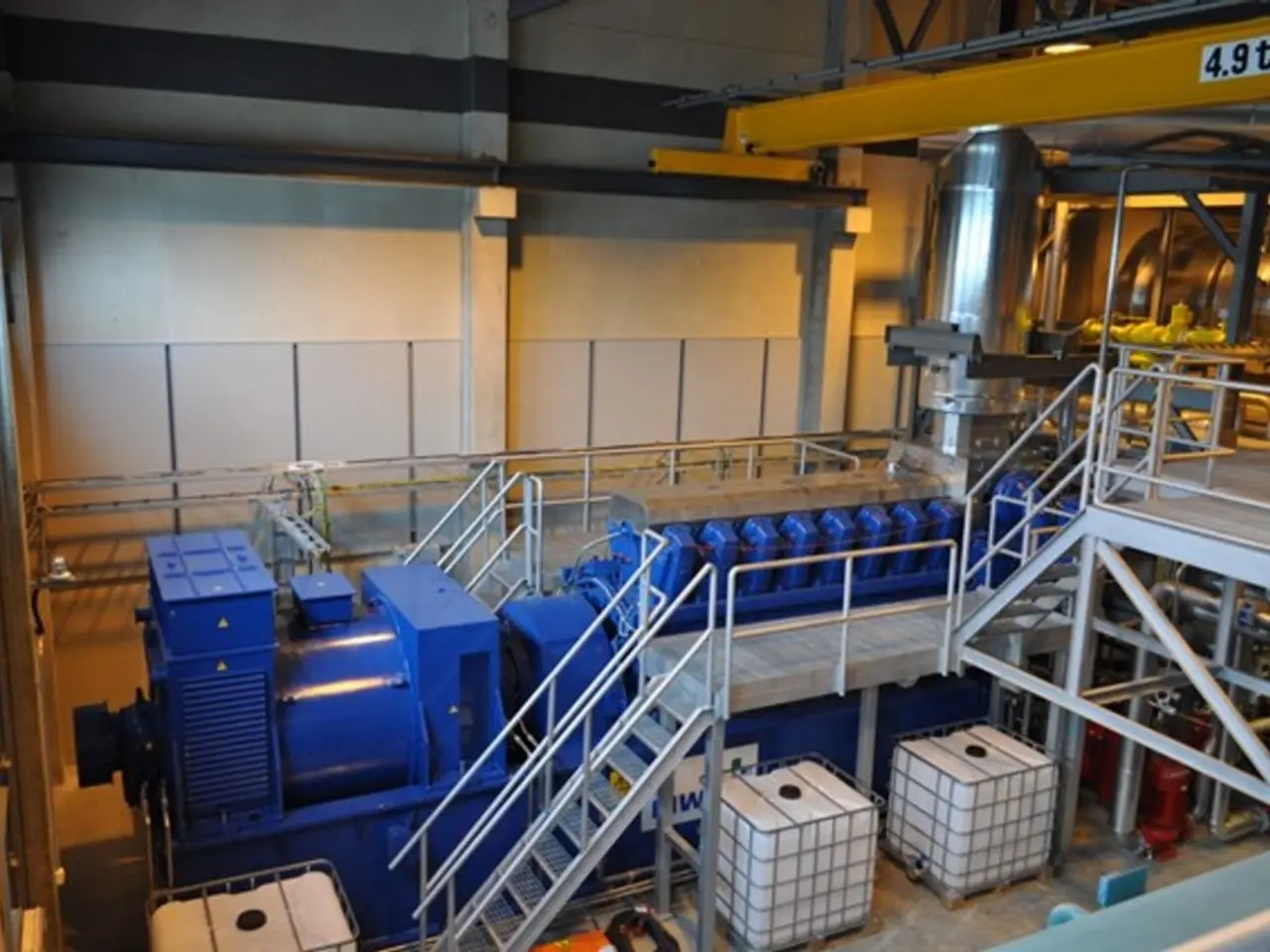Massive Financial Endeavor: Eastern Wind Farms Driving Western Wealth?
In the heart of Europe, Germany is leading the charge in the global energy transition, with a significant focus on building critical infrastructure and supply chains, particularly in battery materials production and renewable energy. The funding for this transition primarily flows through a combination of federal and state government grants [1].
One notable example is the substantial financial support of around €104 million provided to Vulcan Energy by the German Federal Government, along with the state governments of Rhineland-Palatinate and Hesse, to develop domestic lithium production capacity for battery use in electric vehicles [1]. This multi-level governmental collaboration reflects Germany's federalist approach, pooling resources from national and regional levels to strengthen resilience and sustainability in critical supply chains essential for the energy transition.
However, the implications for East Germany’s economic development, while not explicitly detailed, can be inferred in the broader context of German energy and economic policy. Historically, East Germany (the former GDR) has lagged behind West Germany in economic development and industrial innovation. Concentrating strategic energy transition funding and infrastructure investments in Central and West German states potentially risks continuing disparities if equivalent focus and funding are not extended to East German regions [4].
Despite this, broader federal climate and transformation funds totaling about €100 billion are allocated for state governments and municipalities across Germany, which can support local economies, including those in East Germany [4]. This implies an opportunity for East German states to also benefit from energy transition investments, though much depends on regional policy choices and funding allocation.
Meanwhile, the energy transition is causing increased electricity prices and resistance to high-voltage lines, solar parks, and wind turbines in various regions. In Thuringia, for instance, the "partial plan for wind energy" was presented, which provides for a massive expansion of wind power, but has sparked resistance from local citizens [5].
To address these concerns and ensure economic impulses in the coal regions are not braked, it's important to pay more attention to binding skilled workers [6]. Moreover, municipalities in central Germany can receive a share of the profits from wind turbines and solar parks, amounting to 0.2 cents per kilowatt-hour produced [7].
Germany aims to phase out coal-fired power generation by 2038, with 40 billion euros in tax revenue to be invested in coal regions over the next 15 years [8]. The federal government has also reformed the trade tax in 2021 with the aim of keeping more money in the regions of origin [9].
In conclusion, while Central Germany is a key recipient of strategic energy transition funds, ensuring East Germany's robust economic development amid this transition requires targeted policy and funding to balance regional impacts. The potential for East Germany to benefit from energy transition investments is evident, but it remains to be seen how regional policy choices and funding allocation will shape the future of the region in this transformative period.
References: 1. German Federal Ministry for Economic Affairs and Climate Action 2. Thomas Winkelmann of BürgerEnergie Saale-Holzland cooperative 3. Thuringia's "partial plan for wind energy" 4. German Federal Ministry for the Environment, Nature Conservation and Nuclear Safety 5. Resistance in the Saale-Holzland district 6. Importance of binding skilled workers 7. Profits from wind energy and solar parks 8. Germany's phase-out of coal-fired power generation 9. Federal government's trade tax reform
The renewable-energy industry in Germany receives significant financing from both federal and state governments to support the energy transition, as seen in the €104 million provided to Vulcan Energy for domestic lithium production [1]. Meanwhile, the potential for East Germany to benefit from these investments is evident, but requires targeted policy and funding to balance regional impacts and ensure its robust economic development [4].




